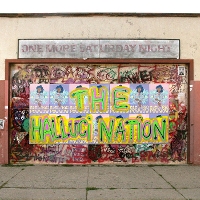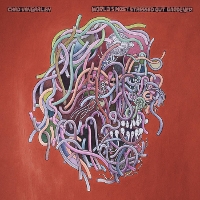 Fucked Up were the obvious choice. Fucked Up takes the Polaris PrizeThe road to the Polaris Prize Gala stirs up lots of debate in Canada's music scene. Awards, generally speaking, can make a lot of people say and do a lot of funny things. Whether discussing the Academy Award nominations, or the Nobel Prize for literature, people seem to have opinions, which have been cast in stone, and have no problem with letting everyone else know them.  Ever since its inception, the Polaris Prize has had the stigma attached to it that the jury likes to play it safe and select very familiar artists for nomination.
Ever since its inception, the Polaris Prize has had the stigma attached to it that the jury likes to play it safe and select very familiar artists for nomination. On Monday, September 21, 2009, the fourth annual Polaris Prize was handed out. This time around, the Toronto hardcore band Fucked Up took home the prize for their brilliant record The Chemistry Of Common Life. From what I can recall the winner of the $20,000 cheque, and bragging rights, were handed out just past midnight, and within seconds, message boards and fan sites were lit up with debate about whether the right band won. The debate hardly started then. In fact, it has been raging online for months. Ever since the Polaris long list was announced on June 15, people have been questioning everything about the prize. Now that the dust has settled, I thought we should look back over the past few months and try to figure out what all the fuss was about. Now what you are about to read are just my thoughts on the award, and by no means am I attempting to disprove your thoughts and opinions. I can only hope to add to the long list of discussion that has surrounded this award since its beginnings, earlier in the decade. Regionalism – Is Toronto Really Better Then Saskatoon?Travel anywhere outside of the GTA, and you will likely find someone who hates the City Of Toronto, and everything it stands for. Big Business. Traffic. Fashion. Condos. Snobby People. The Leafs. These are just a few of the issues people have with our biggest city. Often, you will hear people hate Toronto because they feel it acts like it runs this country, and gets special treatment.  Metric are from Toronto. Did that help or hinder their chances? While their point may be valid, a lot of people looked at the list of nominated acts for the 2009 Polaris Prize and scoffed at the amount of artist that were either from Vancouver, Toronto or Montreal. In fact, from the short list of ten artists, four of them were from Toronto, while another, The Great Lake Swimmers are from Southern Ontario. That is half the list coming from the most populous province in the country. Immediately, journalists and fans alike questioned why this “regionalism” was happening. Was it because these Toronto artists were getting more promotions because they happened to have the luxury of living in the most media friendly city in Canada, or where the records released by Fucked Up, Metric, Elliot Brood and K’naan truly better then most released this year? Personally, I think the truth lies somewhere in the middle. I was born in Toronto, lived there until I was eight, and head back there fairly often. I love that city and have a long history with its streets, clubs and people. That said, I can’t help but believe that if Metric did not happen to have a strong connection to Broken Social Scene that they would not be as huge as they are now. No slight against them. In fact, I think bands should use whatever they can to get their names on the lips of the general public. And while they don’t heavily promote themselves as member of BSS, simply by being a part of the group gets their music listened to by a lot more people. These are the kind of advantages you earn when you live in the biggest city in the country. You can make connections that can make careers. There is a reason why bands like Sloan and the nominated Elliott Brood call Toronto home. The music scene in Toronto is the biggest we have, and it makes total sense why any band, or artist, would try to cut their teeth there. However, getting your music on the minds of people doesn’t always equate greatness, and this is where I agree with a lot of people who question the localism of the Polaris Prize. I am certain that there were better albums released this year then some of the Toronto nominated bands. In fact, for at least two of the acts, Metric and K’naan, have older albums that trump their new works. The regionalism exists, and will continue to do so because the bands which come from bigger music scenes have more resources at their disposal. It’s not fair, but it is a truth in the Canadian Music Scene. They Polaris Prize Took The Safe Approach – Discussing the selection 2009 nomineesEver since its inception, the Polaris Prize has had the stigma attached to it that the jury likes to play it safe and select very familiar artists for nomination. If you were to ask an American, or a European to name Canadian bands, you would likely see a list with the following names on it:  Can Malajube really be the only worthwhile band singing in french? The Arcade Fire Those are certainly the heavy weights in the Canadian Indie music scene. Coincidentally, they have all been shortlisted for the prize, and in Stars’ case, more then once. It seems any of these artists can make an album and get it considered for this prize. I also just noticed that all of these artists are from the Toronto, Vancouver or Montreal Music scene. The balance of the short lists have always been made up of one hip hop artist, and a few up and comers, who always end up winning. There has never been more the one francophone record nominated at a time, and oddly, the only ones ever nominated were both by Malajube. I am not sure I can honestly believe that the only band making outstanding music in French is Malajube. Perhaps, much like the others on that list above, they have a name behind them, and get some additional listens, from jurors, because of this. I don’t want to subscribe to the idea that Polaris Prize is comprised of a lot of safe bets, that the general public will not have an issue with, but it is getting harder and harder every year. When any of the artists I listed above, release a new record, it will be interesting to see whether it is nominated. If I was a betting man, I would place money that it is. Let’s take this issue a bit further. The idea that the jurors only pick the safe bets can be directly attributed to the fact that the bands mentioned have the most money, and publicity backing them. It is an issue with the entire music industry, and not something that I think can be blamed on ten juror members from across this country. The fact is, a band from Flin Flon, MB could release the best record of the year and if it is not done on either a major label, or a large indie (Sub Pop, Arts & Crafts, Mint Records), it will not likely find itself on any year end lists. In this age of instant communications and e-music, It is a sad fact, and something that needs to be changed. Jury Duty – Allowing Non-Musicians To Select The WinnerThis has been something that has always been a point of contention with a lot of people, including myself. Can we honestly respect the opinion of the people who rate music, but don’t understand the different between a major and minor chord progression? Unlike pick the MVP of a sport, music is completely theoretical. There are no batting averages or goals scored to measure. Music does not allow for hard data to be collected, yet we allow people, who are largely untrained in the field to select the winner. No one would ever expect a musician to select Canada’s greatest journalist, yet the opposite is held without question. Seeing as the Polaris Prize is awarded to the best Canadian album, based solely on artistic merit, and not sales, it seems odd to me that very few jurors are established musicians. Sure, Grant Lawrence made some fantastic records with his band The Smugglers, but has juror member?, and has Globe and Mail writer/editor Carl Wilson ever written a piece of music? Not to single him out, or to suggest that music journalists shouldn’t be entitled to their opinion. That would be highly hypocritical, seeing as I am in fact one of them, and you are reading an opinion piece. However, it would make sense that the people in charge of picking the winner have some background in the art. You can’t teach someone to paint if you have never picked up a paint brush. Here is my suggestion. Let the journalists and editors of todays jury select both the short list, and the long list. They still get their say, and everyone can still have fun dissecting the artists selected. From there, I say let the nominees pick who they think should win the $20,000. The only catch; They can’t vote for themselves. The Real Landscape Of The Canadian Music Scene - We Are More Then Just IndieAs I briefly touched upon earlier, the bands, and more specifically, the types of music selected as nominees for the Polaris Prize don’t really provide a true landscape of music being produced across this nation. Let’s go over the list of major musical genres that have never been represented, some even slightly, over the years. Jazz How is it that our best has never included any of these genres? Is the jury honestly saying that we only produce great indie rock? Looking at the nominees closer, are they suggesting that only one hip hop record is good enough to be shortlisted? The main problem with this prize is that the scope of its intentions are too broad, and yet the nominations are not broad enough. In The End, The Best Album Was Chosen - Why Fucked Up Stole The AwardThis year, I can honestly say the jury made the right choice. Sure, Fucked Up are not my favourite band on the shortlist, but they did make the best album based on the mission statement of the prize. The Chemistry Of Common Life is one of the most genre evolving records I have heard in years. No other record in the top ten held that distinction. There were no bad albums on the list. As i have said, there were some conventional releases by bands that have seen better days, but there was no a single release that was a let down by any means. That being said, I don’t think anything, perhaps outside of Chad VanGaalen’s Soft Airplane was as innovative and exciting as the Chemistry, and that is why Fucked Up are $20,000 richer today.
|
Reviews

Mngwa
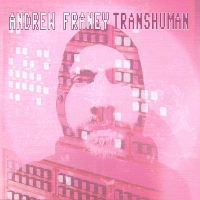
Andrew Franey
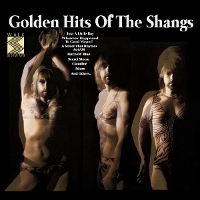
The Shangs

Alex Cuba

Tri Nguyen

Defend The Rhino

Talltale
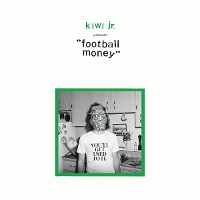
Kiwi Jr.

Plaster

Hyness
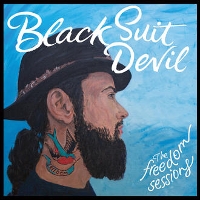
Black Suit Devil

Yamantaka // Sonic Titan
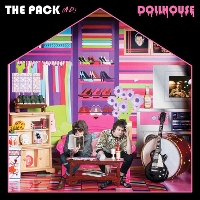
The Pack A.D.
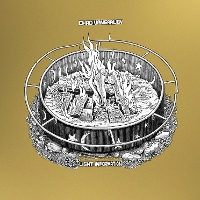
Chad VanGaalen

Potengowski Anna Friederike
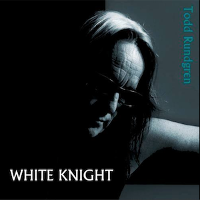
Todd Rundgren

Old 97's
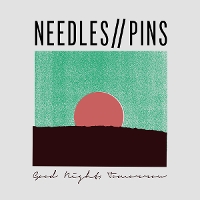
Needles//Pins



